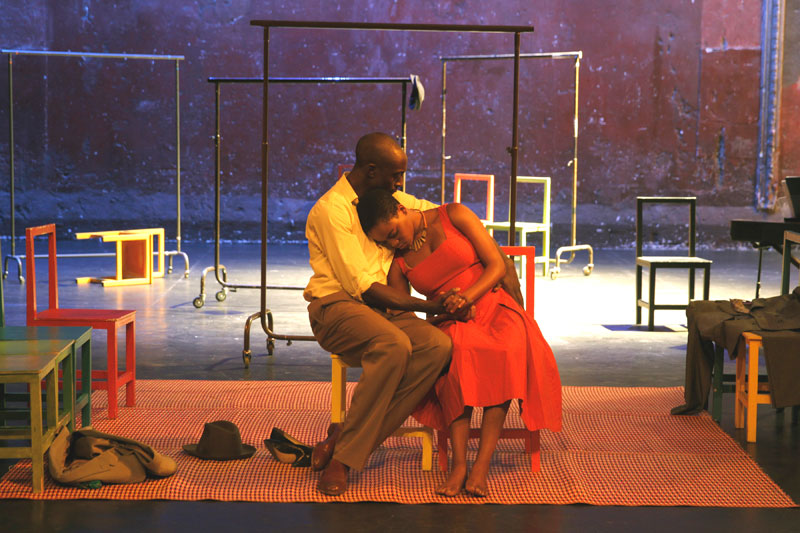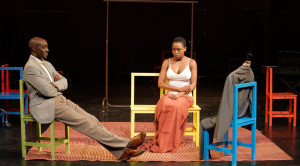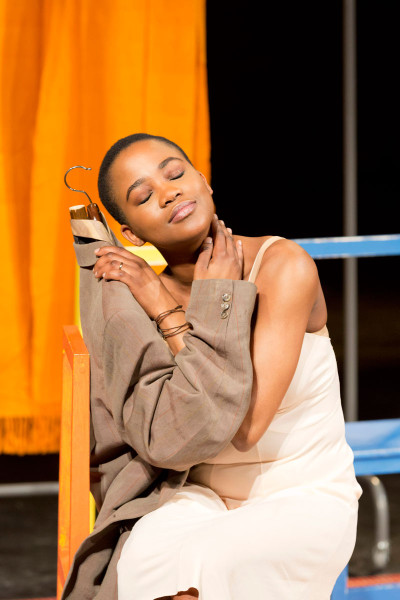The Suit comes to the American Conservatory Theater with a pretty serious pedigree, mostly due to it being directed and co-adapted by British director Peter Brook, a legend in the theater world. The play, based on a 1963 short story of the same name by South African writer Can Themb, has had a long road to travel before reaching San Francisco. It was adapted into a play by Mothobi Mutloatse and Barney Simon that premiered in Johannesburg in 1994, the same year the oppressive Apartheid system that Themba had lived under ended.
That’s when Brook came into the picture. He and translator Marie-Hélène Estienne adapted it into a French play, Le costume, that debuted in 1999 at Théâtre des Bouffes du Nord in Paris. After the success in France, the play later went on to tour the world.
>
The current revival of the show, once again called The Suit and performed in English, was devised at Théâtre des Bouffes du Nord in 2012. Incorporating the music direction of Franck Krawcyzk, The Suit premiered in Paris that year and was followed up with another world tour, which is how it made its way here.
The Suit is a simple story set in 1950s’ Sophiatown, a black township outside Johannesburg. A loving husband, Philemon, who always serves his wife breakfast in bed before taking his long bus ride to work, learns from a friend that his wife, Matilda, is having an affair. Philemon surprises Matilda by coming home early, and her lover flees so suddenly that he leaves his suit behind. Philemon demands that his wife treat the suit as an honored guest from then on. It will sit with them at meals, where she must pretend to feed it, and stay in the room with them when they sleep.

Brook’s staging is elegantly pared down; the stage opens with a plain backdrop that shifts from black to red and back again with Philippe Vialatte’s lighting. Oria Puppo’s scenic elements include a set of brightly colored chairs and free-standing, empty clothes racks. The cast does a lot of miming of simple objects, and the actors narrate the actions and inner thoughts of their characters in third person, except for a long, confusing lapse into first person for Philemon on his bus trip home to catch his wife in the act.
The cast is small, made up of three actors with a trio of musicians wandering in and out of the action — actor Jordan Barbour and trumpet player Mark Kavuma play a large variety of small roles. The gentle thoughtfulness with which Ivanno Jeremiah, an Ugandan actor based in London, portrays Philemon makes the coldness of his demands more chilling. South African Nonhlanhla Kheswa is mild and charismatic as Matilda, and she sings several songs as part of the play, bittersweet renditions of Nina Simone and Miriam Makeba numbers. Her voice is lovely but tentative, and she often swallows the ends of the lines of her songs. American actor Barbour is earnest and concerned as Phil’s friend Maphikela, who also introduces the story as the narrator. He also sings a song — the always potent “Strange Fruit” — but his slow, half-speaking delivery is oddly lifeless.



